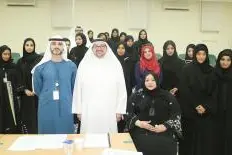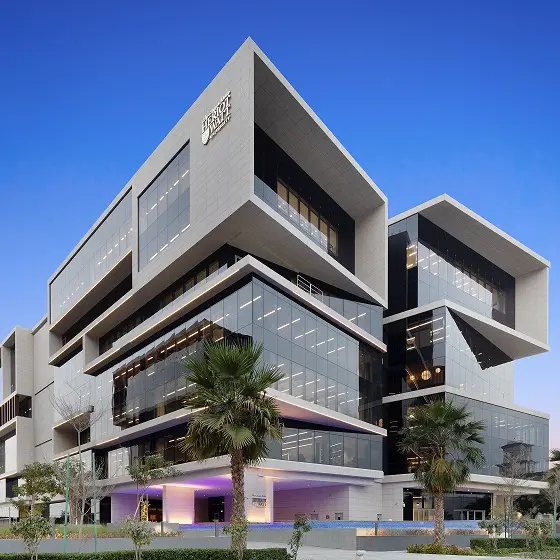PHOTO
Reviews over 5000 applications and provides resolution for each application within one working day.
Policies for occupational injuries, parking facilities for the disabled etc. discussed.
Dubai, United Arab Emirates, December 6, 2015
The General Medical Committee in The Emirate of Dubai held a workshop for human resource officers working in governmental authorities of Dubai to discuss the latest policies and procedures that are applicable for all government departments.
The workshop was also attended by representatives from the General Secretariat of The Supreme Legislation Committee in the Emirate of Dubai.
The Committee was formed in 2007 and the roles and responsibilities of the committee include chalking out unified policies and processes for all government departments.
In the last few months, the committee has received over 5000 applications from various government departments and the committee has addressed every application within one working day.
Dr Atif Abdullatif Saleh, head of the general medical committee in the Emirate of Dubai highlighted the purpose of the workshop and said that the aim is to ensure all human resources officials in Dubai government organizations are aware of the latest policies related to their employees.
During the workshop, the Committee highlighted the medical policies related to occupational injuries. Saleh said: "This includes details such as what qualifies as an occupational injury, the compensation an employee is entitled to according to the law, timeframe within which an employee must receive the compensation etc."
Saleh added that the committee also discussed what defines the term light duty for an employee and those who qualify for it.
Dr. Khaldoon Walid Nabhan, Senior Medical Audit Analyst and Vice Chairperson of the General Medical Committee of the Emirate of Dubai said that the committee is working in cooperation with the RTA and recently presented its recommendations with regard to dedicated parking slots for the disabled.
Nahban said: "The committee recommended that slots should be available for those with permanent disabilities, temporary disabilities, the elderly and for those with certain chronic diseases. The committee is also working with the Community Development Authority and all applications for a disability card will now to given to the committee for evaluation."
Raisa Al Falasi, General Medical Committee of the Emirate of Dubai, said the committee has been able to legalise its policies and this is highly beneficial to ensure unified policies are implemented swiftly and in accordance with the laws of the country.
-Ends-
About the Dubai Health Authority:
The Dubai Health Authority (DHA) was created, in June 2007, by Law 13 issued by His Highness Sheikh Mohammed bin Rashid Al Maktoum, Vice President and Prime Minister of the UAE, Ruler of Dubai, with an expanded vision to include strategic oversight for the complete health sector in Dubai and enhance private sector engagement. His Highness Sheikh Hamdan Bin Rashid Al Maktoum, Deputy Ruler of Dubai and UAE Minister of Finance is the President of the DHA and His Excellency Humaid Mohammed Obaid Al Qatami is the Chairman of the Board and Director-General of the DHA.
The DHA's aim in Dubai is to provide an accessible, effective and integrated healthcare system, protect public health and improve the quality of life within the Emirate. This is a direct translation of the objectives of the Dubai Strategic Plan 2015 launched by His Highness Sheikh Mohammed bin Rashid Al Maktoum. Keeping the strategic plan in mind, the DHA's mission is to ensure access to health services, maintain and improve the quality of these services, improve the health status of nationals, residents and visitors and oversee a dynamic, efficient and innovative health sector.
In addition to overseeing the health sector for the Emirate of Dubai, the DHA also focuses on providing services through DHA healthcare facilities including hospitals (Latifa, Dubai, Rashid and Hatta), specialty centres (e.g. the Dubai Diabetes Center) and DHA primary health centres spread throughout the Emirate of Dubai.
The main pillars of service delivery at DHA health facilities are quality, efficiency, patients and staff. It is our aim to maintain and improve the quality and efficiency of DHA health services. An important aspect of the service delivery strategy is to focus on patients, their needs and satisfaction as well as attract, retain, nurture and support outstanding staff.
Prior to the establishment of the DHA, the Department of Health and Medical Services (DOHMS), which was established in 1973, was the functioning authority that almost exclusively focused on health service delivery.
© Press Release 2015




















